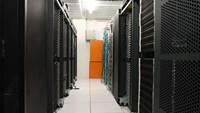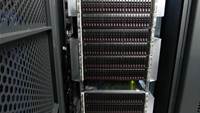An Australian IT service provider serving the global oil and gas industry has threatened to move its data centre from Perth to Malaysia in response to the Carbon Tax.
The operating costs of DownUnder Geosolutions (Dugeo) - which offers supercomputing bureau services and a range of software solutions to the oil and gas industry - rose 10 percent as a direct result of Australia’s carbon tax.
The company operates a supercomputer with 25,000 CPUs and five petabytes of storage, which is used predominantly by small and mid-cap oil and gas firms to crunch seismic data to make more informed decisions on where to drill, using a process called ‘seismic migration’.
The cost of gaining approval and building a marine oil rig - often between $50 million and $200 million - has ensured high demand for such technology services during Australia's resources boom.
Dugeo now faces a dilemma, however, as it adopts 'reverse time migration', which requires twice the compute capacity and an upgrade to GPUs before the end of 2012.
Doubling the supercomputing capacity at its Perth data centre would have a major impact on the company’s power bill.
“Small enterprise are the forgotten people in the carbon tax war,” said Dr Matthew Lamont, founder and managing director at the West Perth-based firm.
“Yes, the big polluters got compensation, the households got compensation, and then the Ministers stand up and say it’s an equal playing field because everybody will put their prices up.
"But our competitors are up in Asia. They aren’t paying that extra ten percent.
“We are looking at sending computers to Malaysia,” he said.
Perth offers Dugeo a “dead reliable” grid, access to skilled labour and lifestyle options for the company’s staff.
But moving to Malaysia's MMSC (multimedia super corridor) in Cyberjaya — where competitors run their clusters — could give the company an eight-year tax reprieve, redundant (2x) power feeds and fat and cheap internet connections, Dr Lamont said.
He said Dugeo would save around $600,000 a year on its 2013 workload if it relocated.
“That’s the carbon tax for you,” he said.
Dr Lamont conceded that it took him a long time to find the company’s present CTO Stuart Midgley (a former ANU and iVEC engineer), and two years for another recent addition to the supercomputing team.
“Probably a quarter of employees are PhDs in physics or geophysics or maths,” he said. “It's multi disciplinary and also requires skills around 3D Visualisation.
"It’s a challenge keeping big computers running here. Up [in Asia] it’s even more of a challenge.
“Everything here [in Perth] is good for us, the only downside is the cost of power. It’s purely the power.”
Dugeo has looked into using co-lo data centres, but none of the providers are interested in 30KW racks. Cloud services like Amazon, meanwhile, have high data transfer charges and hard data storage limits.
"We tried hard to find a bureau service," Dr Lamont says. "The last thing we need is to own machines. But you just can’t do it. You just can’t afford them - the price point of bureaus is crazy.
"I remember getting a quote from a mob that offered a 440 CPU cluster, and we calculated that we could hire that for two months or buy and install our own."
Read on to find out where DownUnder GeoSolutions has invested to protect the business...




_(20).jpg&h=140&w=231&c=1&s=0)
_(28).jpg&h=140&w=231&c=1&s=0)

.png&h=140&w=231&c=1&s=0)



_(26).jpg&w=100&c=1&s=0)

 iTnews Executive Retreat - Security Leaders Edition
iTnews Executive Retreat - Security Leaders Edition












_(1).jpg&h=140&w=231&c=1&s=0)



